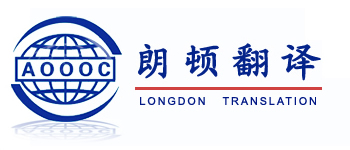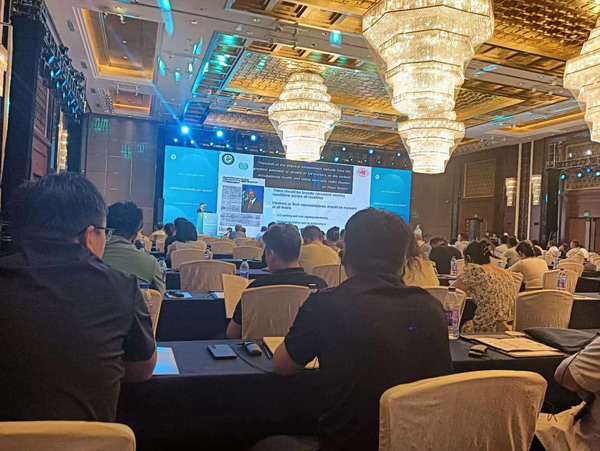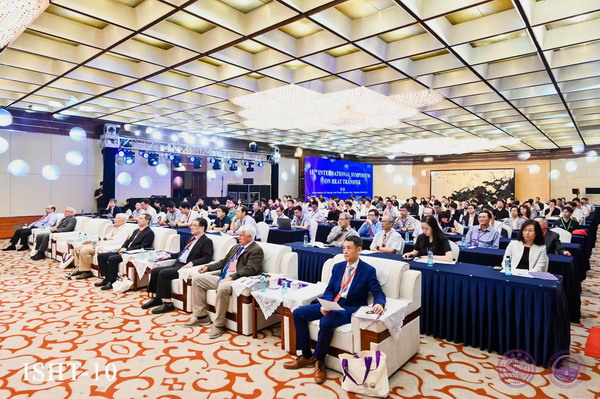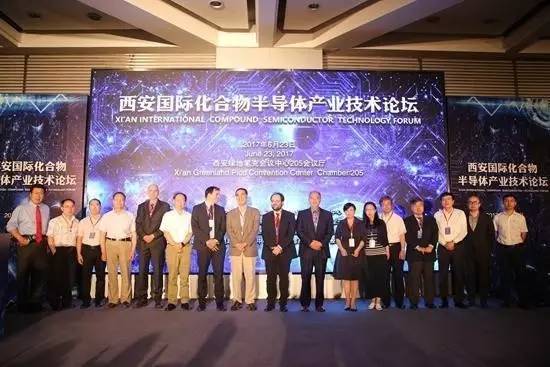In the first part of this mini-series, I surveyed howrobots, automation and other productivity-enhancing technology is affecting industries at theheart of the economy as well as some more exoticscience fiction examples. In the second part, Iconsidered the ��Solow paradox�� �� the strangecombination of breathless innovation withstagnant labour productivity (though not sostrange when you realise there is not that muchinvestment in capital embodying the newtechnologies).
���@��ƪ����ϵ�����µĵ�һ������������{(di��o)���ˬF(xi��n)��C(j��)������������Ԅӻ��Լ�����������a(ch��n)�ʵļ��g(sh��)�����Ӱ푽�(j��ng)��(j��)���Įa(ch��n)�I(y��)�Լ�һЩ�����صĿƻ�С�f������������ڵڶ����������ҿ����ˡ������Փ��(Solow paradox)�������˴����^��Ą�(chu��ng)���cͣ����ǰ�Ąڄ����a(ch��n)�ʵ���ֽM�ϣ����^��(d��ng)�����R�����]����ô���w�F(xi��n)�¼��g(sh��)��Ͷ�Y�r����@�͛]��ô����ˣ������
Today, we focus on the question of greatest political consequence. Who stole the jobs �� wasit robots or foreigners? Or less tendentiously, was the falling number of manufacturing jobs inrich countries caused by trade liberalisation or by automation and other productivity-enhancingtechnological change?
�F(xi��n)�������҂������c�����@��������������Ӱ����������l͵���˹��������ǙC(j��)����߀�����������������߲���ô���ЃA���Ե�������ԣ��������I(y��)�͘I(y��)��(sh��)�������»�����������Q(m��o)�����ɻ����Ԅӻ�������������a(ch��n)�ʵļ��g(sh��)׃����ɵĆ
For it is largely manufacturing jobs we are talking about. The US is special in that overallemployment rates (for all jobs taken together) have fallen since the turn of the century, and forlonger than that among men. As Jason Furman and his colleagues have documentedextensively, the US faces an especially aggravating version of a more common problem inwhich manufacturing jobs have not only disappeared but failed to be replaced by anything at all.
�҂���ҪӑՓ����I(y��)�͘I(y��)�����������������֮̎������������ԏ��M(j��n)��21���o(j��)�ԁ�������w�͘I(y��)�ʣ����й���������һ��һֱ�»��������»��r�g�L�����Ծ͘I(y��)���»��ĕr�g��������ɭ?������(Jason Furman)����ͬ��ӛ䛵Ĵ����ęn���������ǘӣ����������R��һ�����^�ձ�Ć��}�ć�(y��n)�ذ桪������I(y��)��λ���H��ʧ���������қ]�еõ��κ��������
So are robots or trade to blame? The simple and largely true answer is: both. But there is stilla question of their relative importance, and of what exactly the blame entails.
��ô����ԓ�֙C(j��)����߀���Q(m��o)���������һ�����ζ����������_�Ļش��ǣ����߶��֡����F(xi��n)��߀������һ�����}����������������Ҫ�������Լ�����������������������
All industrialised countries have been shedding labour in manufacturing for decades, a processthat started before the wave of globalisation in the 1990s. It is clear that the balance of tradehas little to do with it: the similarities between structural change in employment in perennial-surplus Germany and permanent-deficit US are much greater than the differences.
��(sh��)ʮ��������й��I(y��)�����ҵ�����I(y��)���ڜp�T����ԓ�^��ʼ�������o(j��)90���ȫ���˳��_ʼǰ����Q(m��o)�ײ��~���@�cԓ���}�o�P(gu��n)������̎���Q(m��o)��혲�ĵ��cʼ�K̎���Q(m��o)�������������ھ͘I(y��)�Y(ji��)��(g��u)׃������������c�h(yu��n)�h(yu��n)���^��������
But the growth in overall trade that accompanied the regional and global trade liberalisationduring the three decades before the global financial crisis will have the effect of changing theemployment and production structure of the opening economies �� indeed that is part of thepoint of lowering trade barriers. Standard theory predicts that with more open trade, countrieswill specialise more intensively in production that makes most use of their relative endowmentof labour, skill, capital and natural resources.
��ȫ�����Σ�C(j��)�l(f��)��ǰ��30����ą^(q��)���ȫ���Q(m��o)�����ɻ������Ŀ��w�Q(m��o)�����L�������������׃�_���ͽ�(j��ng)��(j��)�w�ľ͘I(y��)�����a(ch��n)�Y(ji��)��(g��u)�������H���@���ǜp���Q(m��o)�ױډ��IJ������x�������(bi��o)��(zh��n)��Փ�A(y��)�y������S���M(j��n)һ���_���Q(m��o)�ף������������е،���������������ڄڄ����������ܡ��Y������Ȼ�YԴ�ϵ������A�x�����a(ch��n)����
Recent research by Adrian Wood measures to what extent this has indeed happened. As thetable below shows (for more detail, look up the background paper) the share of manufacturingin global production and employment fell noticeably in the three decades from 1985. Butdifferent regions went through dramatically different changes. In particular, in most land-scarce regions (particularly prone to specialise in manufacturing, according to theory) theshare of manufacturing in the economy expanded, while it shrank in all land-abundant ones.
�����ﰲ?���(Adrian Wood)������о��������@�N��r�l(f��)���ij̶����������±���ʾ������Ҫ���༚(x��)��(ji��)��Ո������P(gu��n)Փ�ģ���������1985��֮���30��������������I(y��)��ȫ�����a(ch��n)�;͘I(y��)����ռ�������@�»�������ͬ�^(q��)��(j��ng)�v�˽�Ȼ��ͬ��׃�������������ǣ��ڴ����(sh��)����ϡȱ�ĵ^(q��)������(j��)��Փ��������@Щ������A���ڌ�������I(y��)�ĵ^(q��)�������������I(y��)�ڽ�(j��ng)��(j��)�е�ռ�������U(ku��)�����������س�ԣ�ĵ^(q��)�����������I(y��)�ڽ�(j��ng)��(j��)�е�ռ�ȿsС�����
Wood suggests this shows that the dramatic changes in manufacturing employment can belaid at the door of economic globalisation. But the story is not as simple as that. Look wherethe biggest changes in employment shares happened. Among rich countries (OECD members),the manufacturing employment share fell just as much in land-rich and land-scarce economies.The output share increased in land-scarce ones �� but in conjunction with the loss ofmanufacturing jobs, this is surely an effect of automation and technology. Meanwhile the twoother regions with particularly large structural changes were the Soviet sphere, which in 1985had an overgrown and inefficient manufacturing sector that collapsed under its own weightonce the economy was liberalised, and China, whose liberalisation and trade integration surelycontributed to its industrial revolution.
����J(r��n)��������@��������I(y��)�͘I(y��)�ļ���׃�����Ԛw���ڽ�(j��ng)��(j��)ȫ��������������]��ô���Ρ������������Щ�^(q��)������I(y��)�͘I(y��)ռ��׃������������ڸ�ԣ�����У���(j��ng)�ϽM��(OECD)�ɆT���������س�ԣ��(j��ng)��(j��)�w�c����ϡȱ��(j��ng)��(j��)�w������I(y��)�͘I(y��)ռ�Ƚ����ஔ(d��ng)�������I(y��)������ϡȱ��(j��ng)��(j��)�w�Įa(ch��n)���е�ռ�����ӡ�����ͬ�r����I(y��)�͘I(y��)��ʧ���@�϶����Ԅӻ��ͼ��g(sh��)��Ӱ������c��ͬ�r��������ɂ��Y(ji��)��(g��u)׃���e��ĵ^(q��)��ǰ�K(li��n)�^(q��)���Ї���ǰ����1985������I(y��)�l(f��)չ�^�����Ч�ʵ��£��ڽ�(j��ng)��(j��)�M(j��n)�����ɻ��r������������������������ߵ����ɻ����Q(m��o)��һ�w���@Ȼ���M(j��n)�˹��I(y��)׃�������
What all this points to, then, is a process in which many poor countries went from a pre-industrial employment structure to an industrial one (but some stagnated, in particular inAfrica), and in which all rich countries largely went from an industrial to a service-basedemployment structure. The poor country transition or lack of it no doubt owes a lot to theability to enter the world trading system. In the rich country transition this looks more likewhat you would expect from the continued growth in manufacturing productivity, echoingwhat had earlier happened in agriculture.
��ô���@һ�ж�ָ���˺ܶ�ؚ�F���ҏĹ��I(y��)��ǰ�͘I(y��)�Y(ji��)��(g��u)�����I(y��)���͘I(y��)�Y(ji��)��(g��u)���^�̣�����Щ���ҵ��@һ�^��������ͣ����������e���ڷ��ޣ�����Լ����и�ԣ���һ����ϏĹ��I(y��)���͘I(y��)�Y(ji��)��(g��u)���Է���(w��)�I(y��)����A(ch��)�ľ͘I(y��)�Y(ji��)��(g��u)���^��������ؚ�F���Ҍ��F(xi��n)�D(zhu��n)�ͻ�δ���D(zhu��n)�ͣ��o���c�����M(j��n)�������Q(m��o)���wϵ�������кܴ��P(gu��n)ϵ���������ԣ���ҵ��D(zhu��n)������������������������I(y��)���a(ch��n)�ʳ��m(x��)���L����Ȼ��������������c֮ǰ�r(n��ng)�I(y��)���F(xi��n)����r���ơ�
And conversely, there is direct evidence for the automation thesis. A new study by DaronAcemoglu and Pascual Restrepo tries to measure the effect on US jobs (and wages) of theincreased use of industrial robots. An interview with Acemoglu about the findings puts thenumber of manufacturing jobs lost because of robots at 670,000 between 1990 and 2007.
�෴�����ֱ���C��(j��)֧�����Ԅӻ��������I(y��)ʧ�I(y��)��Փ�c���_(d��)��?����Ī����(Daron Acemoglu)����˹�䠖?��˹���ײ�(Pascual Restrepo)�����о�ԇ�D����������Ӵ�ʹ�ù��I(y��)�C(j��)���ˌ������͘I(y��)�����Yˮƽ����Ӱ������һƪ���о��l(f��)�F(xi��n)������Ī����?sh��)IJ��L������1990����2007����C(j��)���˶���ɵ�����I(y��)ʧ�I(y��)��(sh��)�֞�67�f�������
What lessons can we draw? First, that both trade and automation play a role. But second andmore importantly, that the two cannot be neatly separated �� automation-driven productivitygrowth and attendant job loss may be both an ultimately unavoidable part of economicchange and be accelerated by trade liberalisation. Rich economies with highly-skilled labourforces are well placed to respond to greater trade by specialising in higher-value addedproducts �� just those where automation can do the most to increase productivity. Hence, forexample, the success so far of the US car industry, which produces more vehicles than ever andexports finished cars to China.
�҂��ܵó�ʲô�Y(ji��)Փ��������������Q(m��o)���Ԅӻ����l(f��)�]�����á����ڶ��cҲ�Ǹ�����Ҫ��һ�c����������ߟo���ص��_��������Ԅӻ��(q��)�ӵ����a(ch��n)�����L�Լ��S֮�����ľ͘I(y��)��ʧ���ܶ��ǽ�(j��ng)��(j��)׃����K���ɱ����һ���֣����ұ��Q(m��o)�����ɻ�����������и��܄ڄ����ĸ�ԣ��(j��ng)��(j��)�w������ͨ�^���T���a(ch��n)���߸���ֵ�Įa(ch��n)Ʒ�����(y��ng)���Q(m��o)�הU(ku��)���ڸ��߸���ֵ�a(ch��n)Ʒ�I(l��ng)��������Ԅӻ�����������a(ch��n)��������������������܇�I(y��)�ijɹ����������a(ch��n)����܇��(sh��)�����^�κΕr�������������܇���ڵ��Ї���
But third, that a protectionist trade policy may not do much good even if trade was part ofwhat eroded certain jobs in the past. For if trade helped automation along the way, it is not asif restricting it will wind automation back. At most it may delay further automation, but that willcome at a cost. In particular, it will make it harder to export manufacturing goods into aglobal market that uses the most cost-effective techniques. Trade sceptics who aim toprotect manufacturing jobs should be alert to the distinction of protectionism andmercantilism. While the latter aims to boost exports, the former, by restricting imports, maywell hold back exports, too.
������������M���Q(m��o)������(j��ng)����^ȥijЩ�͘I(y��)����ʧ���������o(h��)���x�Q(m��o)�����߿���Ҳ�����д��̎������������������ʹ�Q(m��o)������(j��ng)���@���^���Ў����^�Ԅӻ�����������Q(m��o)��Ҳ�����Ԅӻ�����������������������ܕ����t�M(j��n)һ���Ԅӻ����������@��Ҫ�������r��������e����������Ӵ������I(y��)�a(ch��n)Ʒ���ڵ������(ji��)�s�ɱ����g(sh��)��ȫ���Ј����y���������ԇ�D���o(h��)����I(y��)�͘I(y��)���Q(m��o)�ב���Փ�ߑ�(y��ng)ע�Ᵽ�o(h��)���x���������x�ą^(q��)�e����������ּ�ڔU(ku��)����ڣ���ǰ�����������M(j��n)�ں��п���ͬ����K����������




